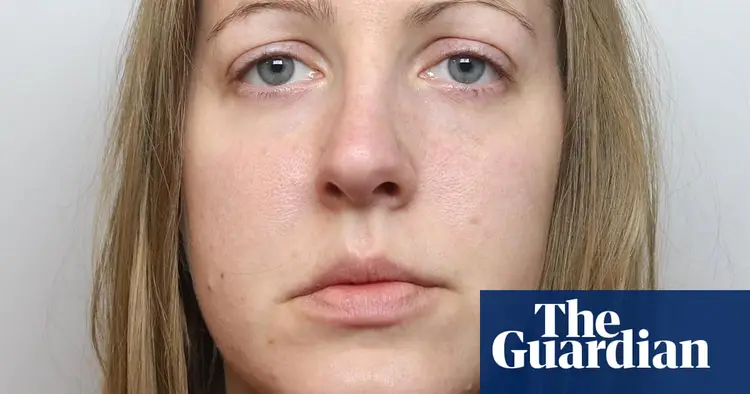Lucy Letby refused permission to appeal against attempted murder conviction

Lucy Letby has been denied the chance to challenge her conviction for trying to kill a baby girl, as the judges determined that she received a fair trial.
The ex-nurse, currently serving 14 life sentences, attempted to challenge her conviction by arguing that she faced intense negative publicity in the media prior to the trial.
However, high-ranking judges rejected her legal appeal following a two-hour session at the Court of Appeal in London on Thursday.
Letby, who is now 34 years old, showed no response to the judges' decision as she listened through a video connection from HMP Bronzefield, a women's prison located in Surrey.
Her new lawyer, Mark McDonald, is getting ready to request a comprehensive review of the convictions from the Criminal Cases Review Commission.
Letby was initially found guilty of killing seven infants and trying to kill six others in the neonatal ward at Countess of Chester Hospital in north-west England.
In June, after a second trial, she was convicted of trying to kill a seventh baby, referred to as Baby K.
Letby, who has always claimed she is innocent, was denied the chance to challenge her convictions from last year. On Thursday, she filed a new request to appeal her conviction for attempting to kill Baby K.
Benjamin Myers KC, representing Letby, said to the three judges that it was "unheard of" for such "extremely damaging and emotional" remarks to be made about a defendant prior to a criminal trial.
He mentioned that police investigators characterized the nurse as "malicious, heartless, and lack ing any feelings." Additionally, a lead prosecutor referred to her as "sly, heartless, methodical, and controlling" following her initial trial last year.
Myers argued that the presiding judge, Mr. Justice Goss, made an error by permitting the retrial to proceed because of the "overwhelming and irreparable" public reactions that occurred after her initial convictions.
He mentioned that the media was filled with harsh negativity directed at the former nurse prior to the retrial. He pointed out 62 instances of aggressive reporting, including a discussion on ITV’s Loose Women that was provocatively named: “Was Lucy Letby born evil?”
Myers remarked that it was unusual for a police department, specifically the Cheshire constabulary, to launch such intense criticisms against a defendant while a retrial was being contemplated.
Nevertheless, Lord Justice Davis, alongside Lord Justice Baker and Mrs. Justice McGowan, stated that they would deny Letby's request to appeal her conviction.
In a decision that was momentarily paused due to a fire alarm at the Royal Courts of Justice in London, Davis stated, “We believe the judge correctly determined that Letby could receive a fair trial.”
The judges determined that nearly all of the media reports that were the subject of complaints were released or aired in the week following the convictions. As a result, the influence of this coverage had diminished quite a bit over time.
They described it as "unrealistic" for law enforcement and legal officials to refrain from expressing emotional opinions about a defendant right after a conviction. The judges concluded that the possibility of a retrial "did not significantly change the situation."
Davis emphasized that the ruling was solely about Letby’s argument against proceeding with her retrial, and it did not address the broader issues surrounding her convictions.
“This case pertains to a specific legal matter,” he stated. “What we've discussed does not impact the broader discussion concerning the charges against Lucy Letby.”
Nick Johnson KC, the prosecutor, stated that Myers' description of the media coverage was neither "fair nor correct."
He informed the judges that a significant portion of the negative feedback from the public was aimed at the hospital management for permitting Letby to stay in the neonatal unit, even after senior doctors had expressed their worries.
Johnson mentioned that most of the media content referenced by Letby surfaced right after the convictions in August 2023, which was 10 months prior to the retrial. Therefore, it's likely that this information would have "faded" from the jurors' memories.
He referenced a "strongly supportive" article about Lucy Letby from the New Yorker, which appeared just weeks prior to the retrial. According to him, this piece gained notable attention after Sir David Davis brought it up in parliament.
Johnson stated, “If this court ever needs proof that media coverage didn’t influence this jury, here it is. The material that was spreading online in the weeks and days leading up to the trial was clearly supportive of Letby and critical of the prosecution."
He remarked, "In that light, it’s worth recalling the saying that what’s featured on today’s front page will just become tomorrow’s fish and chip paper."











































































